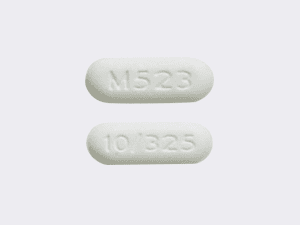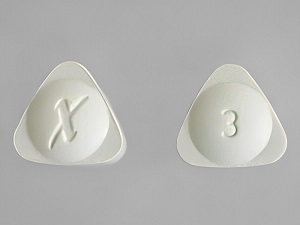How to deal with an Anxiety Attack? How do I clear my mind from an anxiety attack?
Dealing with an anxiety attack can be challenging, but with effective strategies and coping techniques, you can navigate through the experience and regain a sense of calm and control. Here’s a comprehensive guide on how to deal with an anxiety attack and clear your mind during and after the episode.
Understanding Anxiety Attacks
Anxiety attacks, also known as panic attacks, are sudden and intense episodes of fear or discomfort that can be overwhelming and distressing. They are characterized by a rapid onset of physical and psychological symptoms, including:-
- Rapid heartbeat or palpitations
- Shortness of breath or hyperventilation
- Sweating
- Trembling or shaking
- Chest pain or discomfort
- Dizziness or lightheadedness
- Nausea or abdominal distress
- Choking sensation
- Feelings of unreality or detachment
- Fear of losing control or going crazy
- Fear of dying
Step 1: Recognize and Acknowledge
- Recognize the Symptoms: The first step in dealing with an anxiety attack is to recognize and acknowledge the symptoms. Understand that what you’re experiencing is a temporary and manageable response to heightened stress or anxiety.
- Practice Mindfulness: Bring your awareness to the present moment. Focus on your breath, sensations in your body, and the environment around you. Mindfulness can help ground you and reduce the intensity of anxious thoughts and feelings.
Step 2: Practice Deep Breathing
- Deep Breathing Techniques: Engage in deep breathing exercises to calm your nervous system. Breathe in slowly through your nose, hold for a few seconds, and exhale slowly through your mouth. Repeat this pattern several times until you feel more relaxed.
- Diaphragmatic Breathing: Place one hand on your chest and the other on your abdomen. Inhale deeply, allowing your abdomen to rise as you fill your lungs with air. Exhale slowly, letting your abdomen fall. This diaphragmatic breathing technique promotes relaxation and reduces tension.
Step 3: Use Relaxation Techniques
- Progressive Muscle Relaxation (PMR): Tense and release each muscle group in your body, starting from your toes and working your way up to your head. This technique helps release physical tension and promotes overall relaxation.
- Visualization: Close your eyes and imagine a peaceful, calming place such as a beach or forest. Visualize yourself in this serene environment, focusing on the sights, sounds, and sensations. Visualization can help shift your focus away from anxiety-provoking thoughts.
Step 4: Challenge Negative Thoughts
- Identify Irrational Thoughts: Pay attention to any negative or irrational thoughts that may be fueling your anxiety. Challenge these thoughts by asking yourself for evidence or alternative perspectives.
- Cognitive Restructuring: Replace negative thoughts with more realistic and positive statements. For example, replace “I can’t handle this” with “I’ve managed similar situations before, and I can cope with this one too.”
Step 5: Practice Grounding Techniques
- 5-4-3-2-1 Technique: Engage your senses by naming five things you can see, four things you can touch, three things you can hear, two things you can smell, and one thing you can taste. This grounding exercise helps bring your focus to the present moment and reduces anxiety.
- Use Physical Objects: Carry a small object, such as a stress ball, smooth stone, or piece of fabric, that you can touch and focus on during moments of anxiety. The tactile sensation can provide a grounding anchor.
Step 6: Seek Support
- Reach Out to Someone: If possible, reach out to a trusted friend, family member, or mental health professional for support. Talking to someone can provide reassurance, validation, and perspective during an anxiety attack.
- Join Support Groups: Consider joining support groups or online communities where you can connect with others who understand and share similar experiences. Sharing your thoughts and feelings with others can reduce feelings of isolation and stigma.
Step 7: Practice Self-Care
- Prioritize Sleep: Maintain a regular sleep schedule and practice good sleep hygiene habits. Sufficient sleep is essential for managing stress and anxiety.
- Healthy Lifestyle: Eat a balanced diet, engage in regular physical activity, and avoid excessive caffeine, alcohol, and nicotine. Physical health and well-being can impact your mental resilience.
Step 8: Create a Coping Toolbox
- Build Coping Strategies: Develop a personalized toolbox of coping strategies that work best for you. Include techniques such as deep breathing, relaxation exercises, mindfulness, positive self-talk, and self-soothing activities.
- Practice Consistently: Consistency is key to managing anxiety attacks. Practice coping techniques regularly, even during times of low stress, to build resilience and familiarity with effective strategies.
Clearing Your Mind After an Anxiety Attack
After experiencing an anxiety attack , it’s important to focus on self-care and mental wellness to clear your mind and restore a sense of calm. Here are steps to clear your mind after an anxiety attack:
- Reflect and Process: Take time to reflect on the experience without judgment. Acknowledge your feelings, thoughts, and physical sensations during the anxiety attack.
- Practice Self-Compassion: Be kind and compassionate toward yourself. Avoid self-criticism or negative self-talk. Recognize that anxiety attacks are a normal response to stress and not a sign of weakness.
- Engage in Relaxation: Engage in relaxation techniques such as deep breathing, progressive muscle relaxation, or mindfulness meditation to calm your mind and body.
- Engage in Positive Activities: Do activities that bring you joy and relaxation, such as spending time in nature, listening to music, practicing hobbies, or connecting with loved ones.
- Seek Professional Support: If anxiety attacks are recurrent or significantly impact your daily life, consider seeking professional support from a therapist or counselor. They can provide guidance, coping strategies, and personalized interventions to manage anxiety effectively.
Remember that managing anxiety attacks is a process that requires practice, patience, and self-awareness. By incorporating these strategies into your routine and seeking support when needed, you can navigate anxiety attacks more effectively and promote mental well-being.







